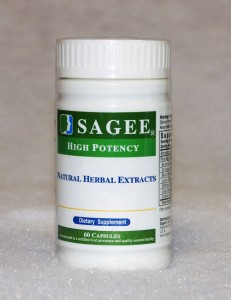 If you are caring for someone with autism, you may have found that it is necessary to use autism supplements. Why is this so? Particularly for autistic children, nutritional supplements can be very helpful, as oftentimes many of their body’s systems do not function at 100% on their own. Additionally, it is common for them to have weaker digestive systems that have a harder time absorbing nutrients.
If you are caring for someone with autism, you may have found that it is necessary to use autism supplements. Why is this so? Particularly for autistic children, nutritional supplements can be very helpful, as oftentimes many of their body’s systems do not function at 100% on their own. Additionally, it is common for them to have weaker digestive systems that have a harder time absorbing nutrients.
Autism supplements aim to provide the body with the nutrients that it needs, to enable it to function on its own with less external help. The supplements should also aid the digestive system, prompting it to absorb various nutrients and to better utilize them. The challenge with autism patients, however, is that one must introduce new things to them very carefully, so as not to create any new problems or complications. The best thing to do is to simply take it step by step.
Basic Autism Supplements
If you are a parent who is just starting to give your child supplements, take your time to do the research and planning; educate yourself on all the various associated issues or side effects that might transpire. You will have to be patient. There are some basic types of autism supplements that autistic children (and adults) need, such as the following:
- Probiotics
- Minerals & vitamins
- Enzymes to aid digestion
- Fatty acids contained in fish oil and other sources
This is a basic list, although you will find many variations of this list, perhaps broken down into many separate components. The best advice we can give is that when you start your child on supplements, you should always only add or change one thing at a time. This way, if there are any undesirable side effects, it will be a simple matter of pinpointing the element that is responsible for the change. Caution is also advised, depending on which supplements you plan to give the person under your care.
Existing Research
Some scientists are sceptical of the efficacy and benefits of giving autism supplements to patients. According to them, there is insufficient research to prove the benefits. Researchers have found, however, that in some cases, autistic patients have a metabolic deficiency. This suggests that amino acid supplements or carnitine may help sufferers of autism.
These findings may point to the fact that in certain cases, autism may be treatable or preventable, but the results are still inconclusive. While giving patients autism supplements seems to improve the symptoms in some cases, they do not know for certain whether this is limited to those with certain genetic predispositions, or whether the supplements might help patients with autism across the board. There are researchers who are investigating this specific question right now.
In Norway, a study was recently conducted that followed women who took a folic acid supplement during an early stage of pregnancy. The results showed that this in fact reduced their risk of giving birth to an autistic child by 40 percent. In another controlled trial, giving autistic children an antioxidant (N-acetylcysteine) successfully improved their mood and levels of irritability.
Despite some positive results and findings, scientists still caution parents not to haphazardly give their children amino acid and antioxidant autism supplements – further research still needs to be done.
Flavonoids: Good or Bad?
It is a well-established fact that diets high in fruits and plants are healthy. One of the properties of plants is that they contain lots of flavonoids, so therefore, flavonoids must be healthy. However, a study published by the University of Colorado has shown that this is not necessarily the case. Flavonoids are active, and do not function in predictable patterns. What scientists have found is that they do not always have a positive effect.
Flavonoids are a part of luteolin, which is one of the commonly recommended autism supplements for children. The study found that luteolin repressed cancer, in one case, but surprisingly, in another case it served to promote cancer. As of now, results are inconclusive, but researchers warn against giving children this potentially harmful autism supplement. The problem with these types of supplements is that they are not regulated as strictly as medicines are. Therefore, companies tend to be lax with testing for unwanted side effects and long-term effects.
A Natural Herbal Supplement
If you are looking for a safe supplement to boost the autism patient’s overall well-being, it may be worth trying Sagee, and staying clear of some of these over-the-counter supplements that may have negative long-term effects. Sagee is a natural supplement that is extracted from traditional Chinese herbs. It is manufactured by a Canadian government GMP-approved facility, and is perfectly safe to consume along with your regular healthy diet. You can take it for extended periods of time with no risk of dependence; Sagee contains no caffeine, hormones, or pesticides.
